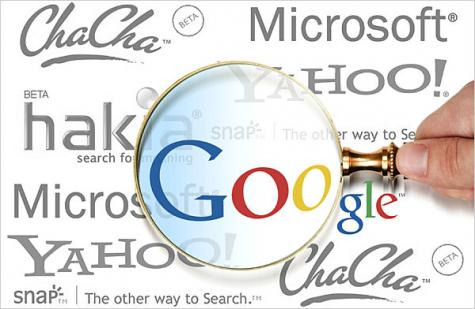Most teachers believe search engines like Google are beneficial to their students, but they also think those same internet research tools are creating an "easily distracted generation with short attention spans," according to a new study.
Educators in the US are worried that digital technologies "do more to distract students than to help them academically," according to the Pew Research Center's report on How Teens Do Research in the Digital World.
But the study also showed that teachers, whether they were tech savvy or not, realise they have a greater role than ever in getting students to think more critically and to conduct more thorough and original research instead of just relying on Google or Wikipedia (which can often be incorrect or incomplete).
It's a lesson that even adults can learn, said Lee Raine, director of the Pew internet Project.
"The basic mantra is to figure out a way to exploit the good and minimise the bad" of the internet, Raine said.
The centre, along with the College Board and the National Writing Project, conducted the survey of 2,462 middle and high school teachers in the United States between March 7 and April 23. The report found "complex and at times contradictory" results.
For example, 77 per cent of advanced placement and National Writing project teachers said the internet digital search tools had a "mostly positive" impact on students. Yet 87 per cent of the teachers said the same technologies were creating a generation of distracted students with short attention spans.
And while 64 per cent of the teachers said digital search tools were doing "more to distract students than to help them academically," 42 per cent of the teachers let students use their mobile phones to look up information while in class.
"The best students access a greater depth and breadth of information on topics that interest them," the report said.
"Students can take advantage of the availability of educational material in engaging multimedia formats and many become more self-reliant researchers."
The internet has changed the very meaning of the word research, which many students call "googling," the report said.
While 65 per cent of teachers said they've seen their students become self-sufficient researchers, 76 per cent said search engines have conditioned students to "expect to be able to find information quickly and easily."
And the overwhelming amount of information available on the internet discourages students from using a wide range of sources "such as online databases, the news sites of respected news organisations, printed books or reference librarians," the study found.
"As a result, some teachers report that for their students, 'doing research' has shifted from a relatively slow process of intellectual curiosity and discovery to a fast-paced, short-term exercise aimed at locating just enough information to complete an assignment," the report said.
In an interview, the National Writing Project's Judy Buchanan said she's known of students who come back to class excited because they learned from the internet that "Elvis Presley is alive."
In some sense, today's students aren't that different than previous generations of students who did research with a printed encyclopedia, she said. But today's Twitter- and-Facebook-fuelled world - in which "something short, quick and flashy" competes with longer and more detailed information - is changing the environment of learning, she said.
"It is something we're all trying to figure out," she said. "It is particularly important to help them figure out credible sources and these technologies that are now in their pockets."
Still, Buchanan said, there need to be more studies about technology's role in creating distracted students.
Indeed, the study showed that while many teachers worried that digital research tools give students a false sense that they can complete all of their assignments "quickly and at the last minute" because information is at their fingertips, many teachers surveyed argued that students also show they can engage in their assignments "over long periods of time."
"Some argue that today's students are able to handle more information at one time because of the digital environment in which they have grown up, and that rather than being described as 'easily distracted,' they should be viewed as being highly skilled at dividing their attention across several things at one time," the report said.

















__small.png)










